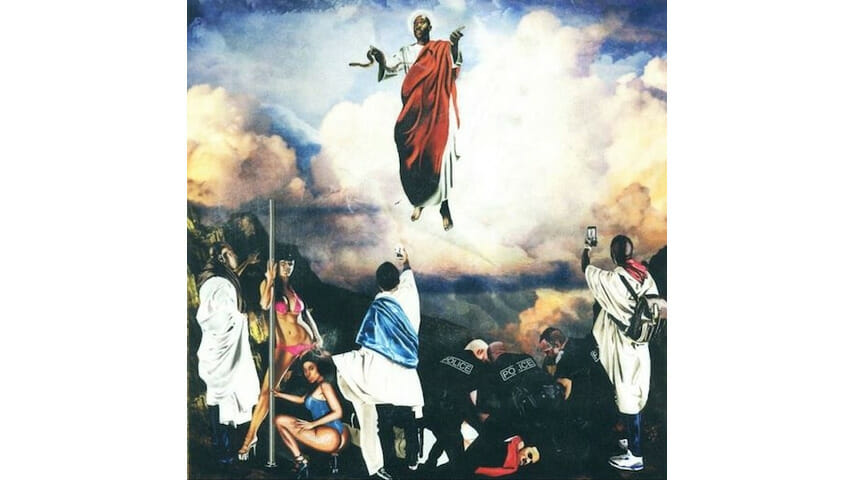Freddie Gibbs: You Only Live 2wice

For Freddie Gibbs, the November election wasn’t the low point of 2016. In June of that year, he was arrested in France, then extradited to Austria and charged with rape with a potential 10 year prison sentence. Though he was found not guilty in September, it was a Pyrrhic victory. His months in foreign jails had come at the expense of his European tour, his reputation, his family and, necessarily, his freedom. You Only Live 2wice is his first album since being released and it is entirely defined by his imprisonment.
Gibbs maintains his innocence (“Crushed Glass”), but the album’s mood is overwhelmingly penitent. The 34-year-old rapper repeatedly apologizes to his daughter and his fiancé, and his scattered tales of street life have a clear moral bent (“Stay smooth, stay solid, nigga/these niggas will put your name in everything but a prayer/Amen,” he says on “20 Karat Jesus”).
The alleged crime is only mentioned obliquely, but through its elision it becomes a kind of omni-crime that encompasses all the wrongs Gibbs has ever committed: in the streets, in relationships and in fatherhood. “Black as hell, but rap got me thinking I need a foreign bitch/Take my black queens for granted, got me ignoring them,” he raps on “Alexys,” a coded apology. “Beat the DEA and the task, now I’m on my ass,” he says on “Crushed Glass,” interpreting his jail time as delayed retribution for past sins.
-

-

-

-

-

-

-

-

-

-

-

-

-

-

-

-

-

-

-

-

-

-

-

-

-

-

-

-

-

-

-

-

-

-

-

-

-

-

-

-








































